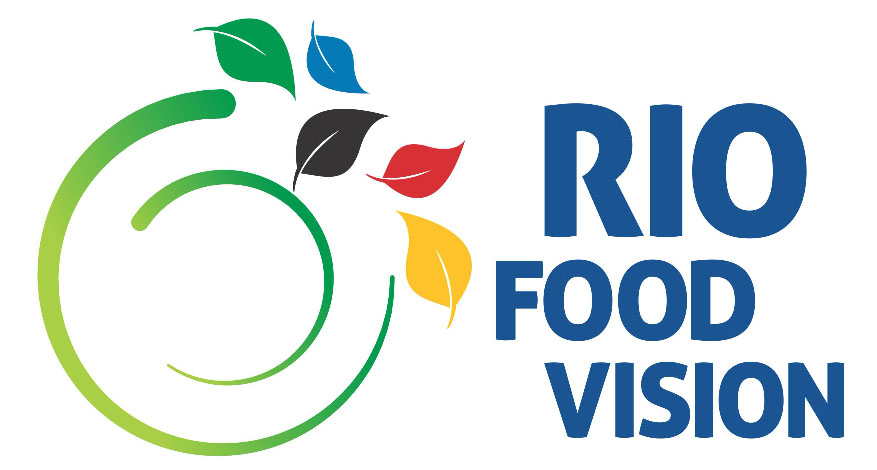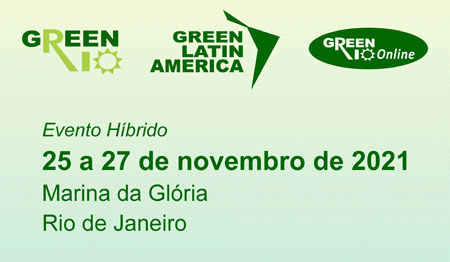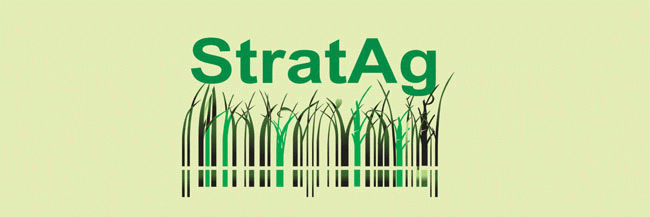 Rio de Janeiro – 17/10/2014 – survey conducted by the Rio Sustainable Food initiative profiles the supply chains of healthy and sustainable foods in Brazil, focussing on Rio de Janeiro, to provide a guide to the steps to guaranteeing supply during the Rio 2016 Olympic and Paralympic Games.
Rio de Janeiro – 17/10/2014 – survey conducted by the Rio Sustainable Food initiative profiles the supply chains of healthy and sustainable foods in Brazil, focussing on Rio de Janeiro, to provide a guide to the steps to guaranteeing supply during the Rio 2016 Olympic and Paralympic Games.
The initiative is an alliance between 26 organisations coordinated by Conservation International – Brasil (CI-Brasil) and WWF-Brasil. The Survey of the Supply of Healthy and Sustainable Food to the 2016 Olympic and Paralympic Games was presented yesterday in Rio de Janeiro during the signing ceremony of the Memorandum of Understanding between the Rio Sustainable Food initiative and the Rio 2016 Olympic and Paralympic Games Organizing Committee which aims to ensure the supply of healthy and sustainable food during the games.
Fifteen supply chains were analysed, including meat, grains, fruit, greens, fish, milk and dairy products. The idea is that the survey will serve as a guide for food policy formulation in the country. The document is available on the initiative’s website: www.rio-alimentacaosustentavel.org.br.
By highlighting opportunities and challenges for the sector, the survey has become an important guide for the organisers of the Rio 2016 Olympic and Paralympic Games and has inspired governments, public organisations, companies and civil society to rethink the food models adopted by large-scale events.
“Our aim is to supply healthy and sustainable food and promote Brazil’s rich culinary heritage”, says Leila Luiz, Head of Food and Beverage of Rio 2016 Organising Committee, bearing in mind that around 14 million meals will be served during the Olympic and Paralympic Games.
The potential for developing a food policy legacy from a mega event such as the Games is enormous. An example of this is the pioneering experience of the London 2012 Olympic Games, where food service providers attempted to reduce the ecological footprint of food by giving priority to locally and regionally produced food.
Guilherme Dutra, Marine Program Director at Conservation International – Brazil emphasises, “The Rio 2016 Olympic and Paralympic Games provide an opportunity for Brazil to improve the structure of healthy and sustainable food supply chains in Rio de Janeiro and Brazil. These foods will have major visibility and should become more accessible”.
Julie Duffus, Sustainability Manager for Rio2016, said: “What people eat will be a core part of their experience of the Games and we not only want the service to run smoothly, we want to inspire every person that will eat at the Games. In parallel we want to improve and support the local food industry to leave a lasting, positive legacy post-Games. We feel honoured to work alongside the Food Vision Initiative and it will provide a fantastic opportunity to promote sustainable producers in Brazil.
Production – one of the strategies highlighted by the survey is to ensure that production complies with the quality standards and regulations imposed by the sustainable products market. The certification of food products involves all stages in the supply chain and is expensive, making it a bottle neck in the sector. According to the initiative’s organisers, it is necessary to create alternatives among the producers involved, such as group or sector certification. Only a certification system recognised by the market is able to convince the consumer that the food product is produced more sustainably.
Despite the growing demand for more sustainably produced food, production in the country remains low. Another obstacle is the lack of reliable data: “This is the first national-scale effort to produce a real assessment of healthy food production in the country”, says Frederico Soares Machado, Public Policy Analyst at WWF-Brasil, one of the organisations responsible for producing the document.
The report provides a number of recommendations to ensure that the Rio Sustainable Food initiative meets its objectives and inform the strategies of the Rio 2016 Organising Committee that has established sustainability parameters for food suppliers and licensed companies of the Games.
Tracking should also be adopted by organisers to guarantee the origin of products. Partnerships with governments and the private sector, and public information campaigns are also among the recommendations made by the report.
Find out more about the Rio Sustainable Food initiative

____________________________________________________________________________________________________




